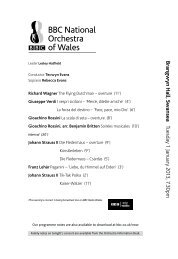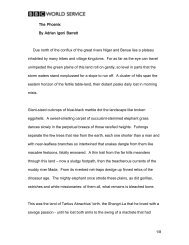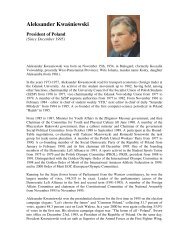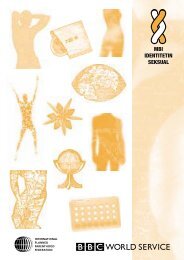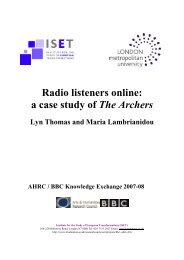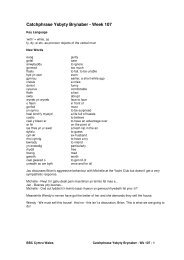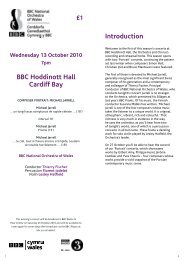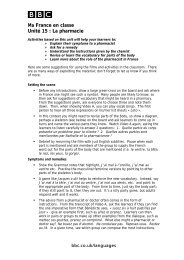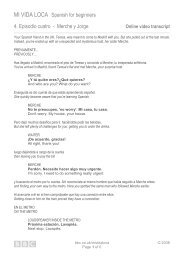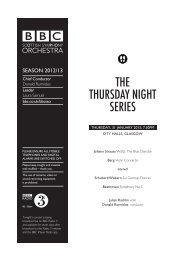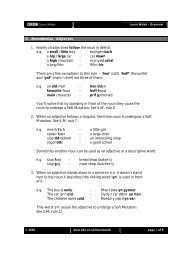musical traditions - BBC
musical traditions - BBC
musical traditions - BBC
Create successful ePaper yourself
Turn your PDF publications into a flip-book with our unique Google optimized e-Paper software.
B B C Northern Ireland Learning <strong>musical</strong> <strong>traditions</strong> The Pipe Band<br />
teacher's notes<br />
chambers with the use of an air bag where the reeds do not come into contact with the mouth of<br />
the player as in other reed instruments. This necessitates the skill of blowing evenly to maintain<br />
a steady sound as the player has to ensure that four reeds (chanter and three drones) are kept<br />
sounding at constant pressure.<br />
Pipers thus learn their melodies on a “practice chanter” without drones or airbag and progress<br />
to the full pipe when this has been accomplished. In effect this means the mastering of two<br />
instruments rather than just one. The tuning of drones is accomplished by altering the length of<br />
the drone which is made in sections for this purpose. Drones are made up of one bass drone<br />
and two tenor drones, with the bass drone being an octave lower than the tenor drone, therefore<br />
being twice the length. All the drones are tuned to the fundamental note on the chanter which is<br />
an octave higher than the tenor drones. This is called “A” on the pipes but in pitch is just slightly<br />
sharper than B ß at on the piano, maintaining a “pedal” note, that is, a sustained single note lower<br />
than the melody. As the melody moves about on the chanter the harmonics of the drones allows<br />
an internal harmony to be heard. Traditionally the drones were tuned by ear but now electronic<br />
tuners are often employed.<br />
There is no doubt about the appeal of the sound of the pipes to some and its offence to the ear to<br />
others. The pipe is very rich in harmonics, with a limited range of notes and does not produce a<br />
diatonic scale. This does not make it any less <strong>musical</strong>, only <strong>musical</strong>ly different, which others Þ nd<br />
attractive and exciting. It remains the case that the playing of the Scottish bagpipe and pipe bands<br />
is growing in popularity throughout the world and across cultures, demonstrating the power of<br />
music and art to unite people from disparate backgrounds.<br />
Resources:<br />
• CDs<br />
World Pipe Band Championships 2004 (3 volumes)<br />
Qualifying Heat CD MON 858<br />
CD MON 859<br />
CD MON 860<br />
Available from retail outlets.<br />
Piobaireachd & Canntaireachd<br />
“Whispers of the Past”<br />
Vol 1 Piobaireachd and Canntaireachd<br />
Vol 2 The Harmonic Piobaireachd<br />
Available from:<br />
The Northern Ireland Pipe and Drumming School<br />
38 Railway Street<br />
Lisburn BT28 1XP<br />
Tel. 028 9262 8591<br />
www.bbc.co.uk/ni/schools 4



